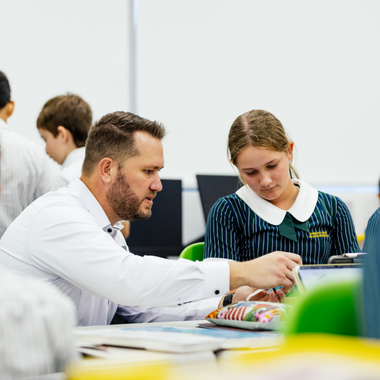Inspiring a lifelong love of music through our Immersion Programs
At Sunshine Coast Grammar School, music is more than a co-curricular activity, it is a key part of our curriculum that fosters creativity, excellence…
Read more

At Sunshine Coast Grammar School, music is more than a co-curricular activity, it is a key part of our curriculum that fosters creativity, excellence…
Read more

Sunshine Coast Grammar School is proud to host the upcoming Regional da Vinci Decathlon Championships for the third consecutive year and is set to…
Read more

Over the recent Term 1 holiday break, twenty enthusiastic History and Geography students from Year 10 – 12 embarked on a life changing education…
Read more

Our inaugural Italy Tour for 20 enthusiastic History and Geography students from Years 10–12 promises to be an unforgettable two-week journey. During…
Read more

Sunshine Coast Grammar School’s Year 12 Robotics Team is preparing to present their robot on the international stage at the Asia Pacific Open…
Read more

On Saturday, over 150 Sunshine Coast Grammar students, staff and families came together for their annual Beach Clean event. This year’s efforts…
Read more

Like many of you, I have spent the last few years zipping through virtual shopping aisles, randomly and enthusiastically selecting AI tools and…
Read more

Grammar recently showcased exceptional talent and sportsmanship at Tennis Queensland’s Brisbane International Primary Schools Cup this month, with…
Read more

With the buzz of the new school year just around the corner, we explore the excitement and challenges students and their parents face as they embark…
Read more

I met a unicorn last week. My unicorn was the parent of a 15-year-old girl whose daughter had never owned a mobile phone. The unicorn and her…
Read more

James Luu achieved an extraordinary academic milestone, earning a prestigious QCAA Certificate of Academic Commendation. Reflecting on his success,…
Read more

Sunshine Coast Grammar School is proud to announce that Justin Pembroke, Head of Digital Innovation, has been named in The Educator’s prestigious Hot…
Read more